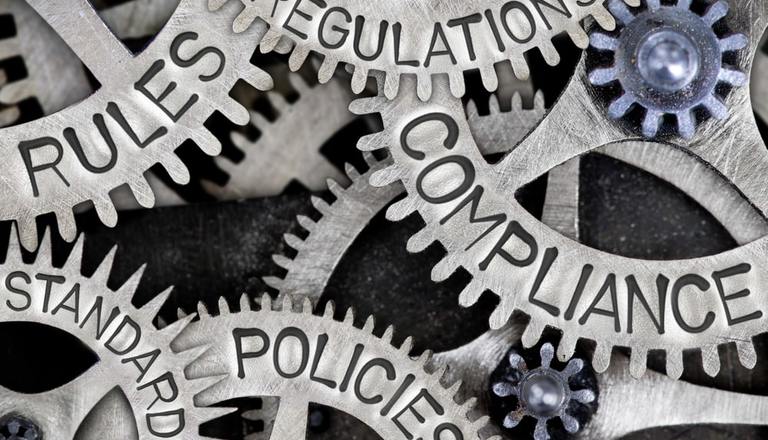
A look at how lottery laws are enforced
Like any other industry in this world, the lottery is subject to, and protected by, various law enforcement agencies, such as federal, state/province, municipal, and governmental over-site agencies. As such, law enforcement plays a necessary pivotal role in ensuring the integrity and fairness of lottery operations, safeguarding against fraud, corruption, and illicit activities.
Rules and regulations
Lotteries are subject to a myriad of regulations and rules designed to uphold transparency, fairness, and to protect players. At the heart of this are regulatory bodies tasked with licensing, monitoring, and enforcing compliance within the industry. In the United States and Canada, for instance, each state and province operates its own lottery system overseen by dedicated regulatory agencies. These agencies establish rules governing everything from play rules, ticket sales and prize payouts to advertising standards and responsible gaming initiatives.
Beyond domestic regulations, international organizations such as the World Lottery Association (WLA) set global standards for lottery operations, promoting best practices and collaboration among member entities. Adherence to these standards not only enhances public trust but also facilitates cooperation with law enforcement agencies across borders.
Fraud and corruption
Lotteries, like any business, are not immune to fraud, with schemes ranging from ticket tampering and insider manipulation to sophisticated scams targeting unsuspecting players. Law enforcement agencies play a crucial role in investigating and prosecuting such crimes, often collaborating with regulatory bodies and industry stakeholders to identify perpetrators and mitigate any risks.
One of the most notorious cases of lottery fraud occurred in the United States in the late 20th century. The infamous "Triple Six Fix" scandal saw several Pennsylvania Lottery employees conspiring to manipulate the outcome of the Daily Number drawing, resulting in fraudulent payouts worth millions of dollars. The subsequent investigation led to arrests, convictions, and sweeping reforms aimed at bolstering security measures and internal controls within the lottery.In addition to fraud, corruption poses a significant threat to the integrity of lottery operations.
Cases of bribery, extortion, and collusion have tarnished the reputation of the industry, underscoring the importance of robust enforcement mechanisms and ethical governance practices. By rooting out corruption and holding wrongdoers accountable, law enforcement helps preserve the credibility and trustworthiness of lotteries as legitimate industries.
Major advancements in technology have revolutionized the lottery industry, offering innovative tools for both operators and law enforcement agencies alike. From secure online platforms and digital ticketing systems, to cutting-edge data analytics, these solutions bolster security, enhance transparency, and streamline regulatory compliance.
For instance, new blockchain technology holds the potential to revolutionize the way lottery transactions are recorded and verified, providing a permanent and tamper-free ledger of ticket sales and prize payouts. By leveraging cryptographic algorithms and decentralized networks, blockchain ensures transparency and tamper-proof integrity, reducing the risk of fraud and manipulation.
Moreover, data analytics and now artificial intelligence (AI) can help to empower law enforcement agencies to detect patterns, identify anomalies, and uncover illicit activities within the lottery system. By analyzing vast amounts of transactional data, authorities can pinpoint suspicious behaviour, track money laundering activities, and disrupt criminal networks operating in the shadows.
Lottery fraud and corruption can often transcend national borders, necessitating coordinated efforts among law enforcement agencies across international jurisdictions. Interpol, Europol, and other international law enforcement bodies play a crucial role in facilitating information sharing, joint investigations, and cross-border collaboration to combat transnational crime networks targeting lottery operations.
Initiatives such as the WLA's Security Control Standard (SCS) promote global cooperation and information exchange among lottery operators, regulatory agencies, and law enforcement partners. By aligning security protocols and sharing intelligence, stakeholders can effectively thwart criminal activities and uphold the integrity of lottery operations worldwide.
Despite the progress made in combating fraud and corruption, the lottery industry continues to face challenges in an increasingly digital and interconnected world. Cybersecurity threats, emerging technologies, and regulatory complexities pose persistent risks that demand an aggressive proactive strategy and adaptive responses from law enforcement and industry stakeholders.
The proliferation of online gambling platforms and decentralized finance (DeFi) ecosystems introduces new vulnerabilities and regulatory dilemmas for lottery operators and regulators alike. Balancing innovation with risk management remains a very delicate endeavour, requiring continuous dialogue, collaboration, and investment in robust enforcement programs.
Looking ahead, the use if blockchain, AI, and biometric authentication holds immense promise for enhancing security, transparency, and trust within the lottery industry. By aggressively embracing technological innovations and strengthening regulatory oversight, law enforcement agencies can stay ahead of emerging threats and safeguard the integrity of lotteries as a beacon of hope and opportunity for millions around the globe.
As we can see, law enforcement plays a crucial role in safeguarding the integrity and legitimacy of the lottery industry, ensuring that all games of chance remain fair, transparent, and free from fraud and corruption. Through collaborative efforts, technological innovation, and international cooperation, stakeholders can uphold the highest standards of accountability and trust, preserving the allure of the lottery as a symbol of a possible fortune for any one player.
